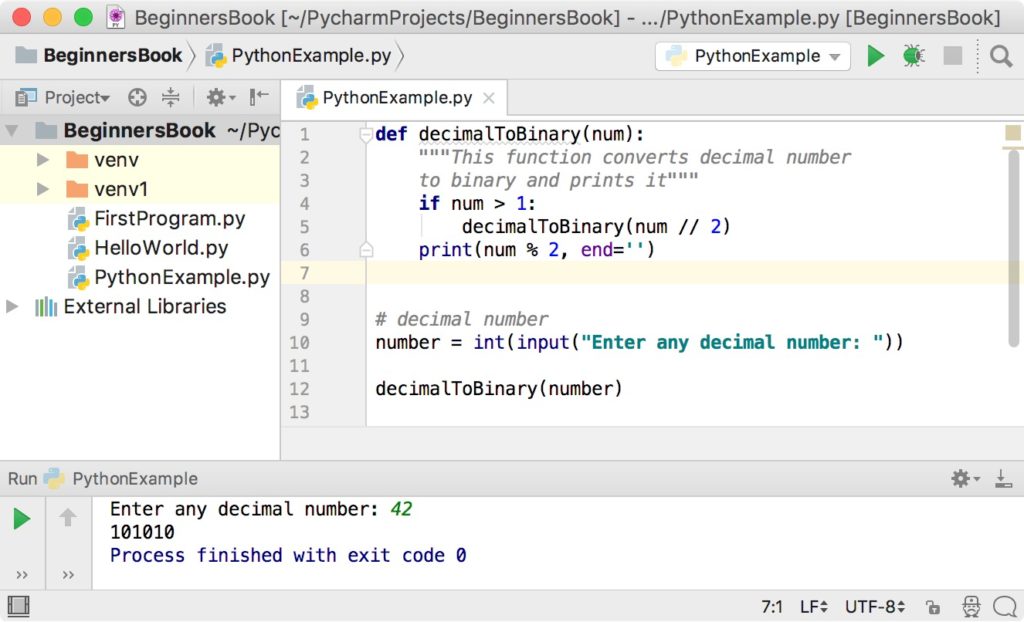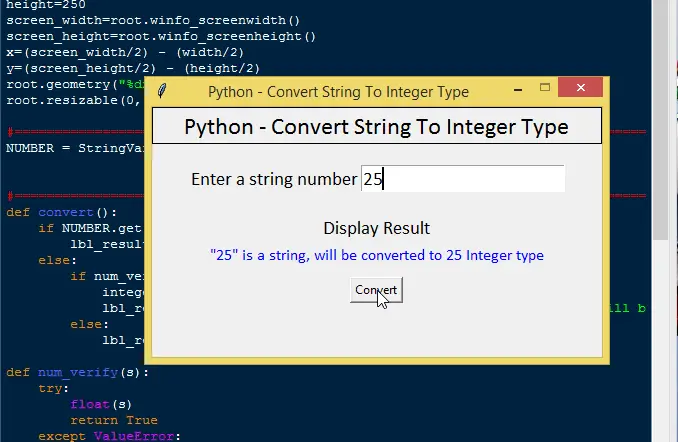


Product = 0 x 2^2.Īt last, the summation of all the products gives us the decimal form of the binary representation. The third bit from the right, 0 gets multiplied to 2^2. The second bit from the right, 1, gets multiplied to 2^1. The rightmost bit, 1, gets multiplied to 2^0. Now that we have multipliers, we then multiply them with the respective digits they are assigned to. Starting from right towards the left(the lowest bit to the highest) we multiply the digits in binary representation with a power of two.įor the rightmost bit, the multiplier is 2^0įor the second position from the right, the multiplier is 2^1.įor the third position from the right, the multiplier is 2^2. Now, there is a multiple for each digit in binary representation. Int(x = b_string, base = 2) # Convert to base 2.Īpproach 2: Using bitmasking and left shift operatorīefore moving forward, it is necessary to understand how we convert the binary number to its decimal form. # Now, convert back the binary string to integer with int() and base parameter. Print(b_string) # Print the binary string representation.


 0 kommentar(er)
0 kommentar(er)
